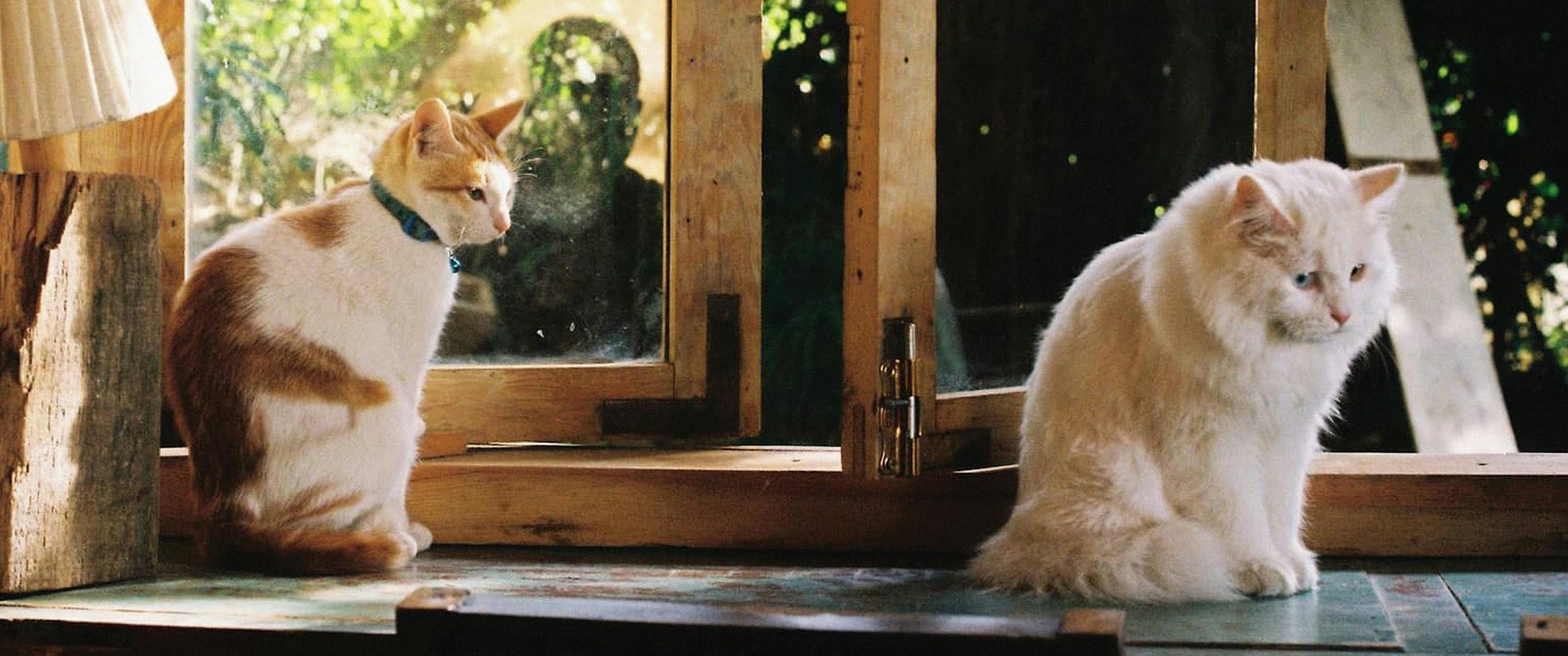
Relocating to a new country often brings excitement but can also involve difficult decisions, especially when we debate bringing or leaving pets behind. Suppose you’re considering moving abroad and need advice on whether to decide what to do with your pet. In that case, we offer comprehensive guidance to help you through the process and understand the impact on both you and your pets. Read along to learn more.
When moving abroad, your decisions depend on financial and logistical aspects, the regulations of the destination country, and many other circumstances. See below what steps you can take to solve some of the possible issues on your way.
Sometimes, keeping our pet friends by our side becomes more arduous than we project, and unfortunately, thoughts of rehoming or giving them to adoption start to pop up. The reasons behind rehoming a pet can have many origins, whether your decision is based on financial or health problems or simply not having spare time to give the care a pet deserves. Either way, it’s a heartbreaking situation for both parties. The pain is no less impactful than leaving a family member behind. Still, it can be considered an altruistic attitude, even though we wish to keep them by our side, acknowledging they would have a better quality of life is being responsible. Knowing they’re living in a home where they can receive all the deserved attention and love can be rewarding and will help you accept the situation. Below, we list some strategies to help you manage those emotions:
Moving pets overseas involves many complications. The difficulty level varies depending on factors such as the destination country, the breed, the transport (plane or car) and more. These are just a few possible obstacles. Dealing with the paperwork is what presents the real challenges. What might look like exaggerations, such as the preoccupation with rabies, have great points. Some countries are rabies-free, and they follow strict rules to continue to be. The following presents tips and the points you might go through when moving pets overseas:
Yes, pets can get sad when surrendered. They often form strong bonds with their owners and may experience separation anxiety. According to Chief Program Officer at Best Friend Animal Society, Marc Peralta, talking to family, friends and your veterinarian to check for who might be looking to adopt a pet is a good idea. Perhaps being surrounded by people they met previously will help mitigate the bad feelings. Putting the word out there might help to find options among friends and family. Knowing your pet will be cared for by people you have some extent of a bond with is a relief. In other cases, he stresses the importance of conversing with potential adopters. Being objective about why you’re rehoming your pet will give a clear idea to its new owners. This will ensure there won’t be any issue with them being open to the adoption. Peralta says it is better for your pet to be located directly in a new home instead of leaving it in a shelter immediately. If not possible, researching dedicated shelters is a good alternative. Just be sure to search for crucial information on the quality and transparency of the shelters of your choice. Read reviews, and make more than just a few visits to ensure you’re lending your friend to careful hands. Summing up, a gradual transition is the greatest option whenever possible. Spend time with your pet during the transition period and introduce them to their new environment. Ensure the new owner understands the particular emotional needs of your pet and leave the scene when you feel they’re prepared to provide a stable and loving environment.
Yes, pets can get sad when surrendered. They often form strong bonds with their owners and may experience separation anxiety. According to Chief Program Officer at Best Friend Animal Society, Marc Peralta, talking to family, friends and your veterinarian to check for who might be looking to adopt a pet is a good idea. Putting the word out there might help to find options among friends and family, knowing your pet will be cared by people you have some extent of a bond is a relief. He also stresses the importance of having a straight conversation with potential adopters. Being real about the reasons you’re re-homing your pet will give a clear idea to its owners, this will make sure will won’t be any issue on them being open to the adoption. Peralta says that researching dedicated shelters is a good alternative if you can ensure your pet will be located directly in a new home. Just be sure to search for crucial information on the quality and transparency of the shelters of your choice. Read reviews and make more than just a few visits to ensure you’re lending your friend careful hands. Summing up, a gradual transition, whenever possible, is the best way to do things. Spend time with your pet during the transition period and introduce them to their new environment. Ensure the new owner understands the particular emotional needs of your pet and leave the scene when you feel they’re prepared to provide a stable and loving environment.
Leaving a pet behind can be emotionally taxing. To cope, you can stay connected with the new owner to get updates about your pet, reassuring them about their well-being. Allow yourself time to grieve, as feeling sad is natural, and engage in self-care activities to manage stress and cope with the transition. If you plan to move abroad with your cat, it is often possible but requires careful planning. Ensure you understand the entry requirements for your destination country, which typically include vaccinations, microchipping, and sometimes a health certificate. Prepare for travel by making arrangements that accommodate your cat’s needs, such as a comfortable carrier and appropriate flight conditions.
When moving to Portugal with a pet, non-EU citizens must navigate additional procedures. You must secure the appropriate visa, obtain a pet passport, and comply with customs regulations. Organisations like the Portuguese Veterinary Association and local expat communities can provide valuable views from people who went through similar situations to support you. Engaging with relocation experts who can advise you where to find help with pet transport and customs clearance can facilitate this process. Hiring a specialised company to aid you with all the details of your house removal is getting ahead of the problem. One less thing to worry about is all you need at times like these. Know that here at VanOne International Movers, we specialise in removals to Portugal. You get in contact with a team equipped with technology of excellence capable of serving you with tailored service to ensure you have all your needs met. We offer services from customs clearance to door-to-door collection and delivery. Contact us today to get advice and get a free quote.
I got Nico when he was only four weeks old. A friend’s pet had given birth to five cute kittens, and she asked if I’d adopt one. At first, I didn’t think I’d be the best fit, but I accepted the challenge. From the start, Nico was full of energy, and I had to give him a lot of attention. I had to make the necessary adaptations and concessions to fit into my new friend’s way of living. It’s worthed, though.
Nico was by my side during my ups and downs, supporting me when studying for my exams and more. I graduated, did my internships, and started working. I never imagined having to be apart from him. I decided to go for my PhD since many colleagues advised me that taking advantage of the rhythm and subjects still fresh in my brain was just right. So, I wanted to go immediately.
The costs with Uni made it harder to envision me to keep working in the UK. Although the UK is known to have the best PhD programs in medicine, the prices just didn’t fit my expectations, including food for Nico and me, housing, extra expenses, and now the PhD tuition. It wasn’t about right.
I started my search for a high-quality yet much more affordable education. After analysing the education costs in several European countries, I found a program in Portugal that would fit my expectations and pockets. I stumbled upon a website with a Health technology assessment; that was exactly what I was looking for. After analysing the education costs in several European countries, that was the one that offered a program that would fit my expectations and pockets.
I didn’t know that Nico didn’t fit into the new plan. Studying full-time for four years didn’t leave a breach to care for a pet like Nico. He needed constant attention. Back in the UK, Nico had a broader support system, and my relatives and occasionally a pet sitter would aid me in caring for him. But things were completely different now, and I needed to keep to the budget to succeed in my new endeavour. I had to make the worst life decision, leaving Nico behind.
I had to find a new home for Nico before I left the UK. I started connecting with people I knew had pets, but none of them could adopt another one, so my only way out was to contact a local animal shelter.I could accompany the process, and they even allowed me to meet Nico’s new parents—a loving family of five. Despite the heartache, I felt reassured, knowing that Nico would be well cared for. The shelter provided regular updates, as the new owners sent them photos of Nico, which helped ease my concerns about his well-being.
 Why Are Italians Moving to Portugal?
Why Are Italians Moving to Portugal?Why Are Italians Moving to Portugal? In recent years, many Italians have decided to leave their homeland and…
 What is Expat Burnout? Causes, Symptoms, and Solutions
What is Expat Burnout? Causes, Symptoms, and SolutionsWhat is Expat Burnout? Causes, Symptoms, and Solutions Expat burnout, often referred to as expatriate burnout, is a…
 Where is the best place for the elderly to live in Europe?
Where is the best place for the elderly to live in Europe?Where is the best place for the elderly to live in Europe? Moving abroad presents opportunities and challenges,…
 How Expensive is Food in Portugal?
How Expensive is Food in Portugal?How Expensive is Food in Portugal? Portugal is known for its rich culinary heritage and affordable dining…